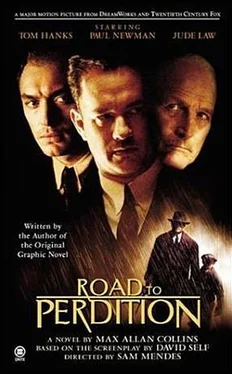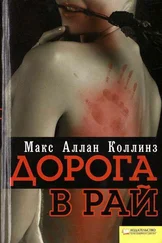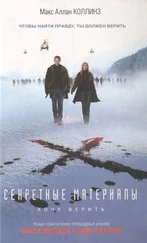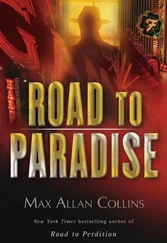Of the ninety-five acres of Chippiannock Cemetery, five were reserved for Catholic families. The Indians had called the place Manitou Ridge, and Sauk wives had raised corn on the fertile, gently sloping summit, to feed the men, encamped for war. The white people who turned it into a cemetery called it Chippiannock — an Indian word for “village of the dead.”
A statue of a dog lay faithfully at the grave of a boy, five, and girl, three, who back in pioneer days had died of typhoid fever. An elaborate monument with a soldier on either side and an eagle atop cannon balls saluted the local fallen of American wars. Colonel George Davenport, the man for whom the city across the river was named, lay here, not in Iowa. And stone cherubs and angels guarded the gray gravestones without complaint, under-dressed though they were for the winter afternoon.
All of these made for good color, Maguire knew; he’d arrived an hour prior to the graveside services, and a sawbuck bought a nickel tour from a groundskeeper, with a few tidbits thrown in for free by a pair of gravediggers. The factual detective story magazines ate this stuff up almost as much as they did sex and slaughter.
As distant church bells tolled on cue, Maguire kept his distance, at the back of the gathering of mourners — perhaps two dozen — attending the burial of Anne Louise O’Sullivan and Peter David O’Sullivan. There had been no church service, no mass. The circumstances were too strained, and strange, for that.
He didn’t expect O’Sullivan to show — but you never knew. Some of these tough men had sentimental streaks a yard wide. So he kept watch, noting the armed bodyguards grouped around John Looney, who was weeping, the goddamn hypocrite. No sign of his loony son Connor.
After the two flower-draped caskets were lowered, various mourners came up to a pleasant-looking, white-haired woman in her late forties, dressed in dignified black; they would introduce themselves and then express their condolences. This would be the surviving relative, clearly from out of town, to whom these sad arrangements and duties had fallen.
He followed several cars — including the funeral-home limousine — to the house in Rock Island that matched the address Nitti had given him. The O’Sullivan family had lived in this fairly large two-story home — old Looney had treated his top gunman well, up to the point where the guy’s wife and kid got bumped off, anyway.
Cars pulled into the driveway, and drew up along the street in front, as various mourners paid their respects, going up to the door in little informal groups. Maguire fell in with one of these mournful clusters.
With the bereaved relative occupied with her guests — food in the kitchen had been provided by neighbors — Maguire prowled the residence inconspicuously, taking in details like a hungry man took in a meal. He looked at old photos, family portraits of Annie and her kids together; O’Sullivan always seemed to stand to one side, vaguely detached.
Maguire understood that. Standing outside of yourself was necessary, when your profession was death. He had seen the same expression on the face of the mortician who’d been running the show at the graveyard that afternoon.
Some of the portraits had John Looney in them — arms around the boys, at age four and five he’d guess... so very grandfatherly. How goddamn touching, Maguire thought. A middle-aged woman — Looney’s wife — was in some of the pictures, always standing next to the old man. She hadn’t been at the services today. Dead, probably.
He asked where the bathroom was and someone pointed him upstairs. Glass of punch in hand, Maguire moved casually down the second-floor corridor; but once he was in the room that had been the boys’ bedroom, he probed with surgical precision. In a drawer next to one of the boy’s beds — the older boy? — he found a stash of Big Little Books, westerns mostly. Beneath the mattress he discovered a pouch of Bugler tobacco... definitely the older boy, he thought with a smile.
In the master bedroom he found little of note, except perhaps the Catholic trappings — a crucifix, devotional paintings, Christ revealing His sacred heart. Tasteful, traditional nonsense. Maguire wondered if these beliefs were the dead wife’s alone — if O’Sullivan had a religious streak, that might prove an Achilles’s heel.
Sentimental — these killers could be so goddamn sentimental. Was O’Sullivan one of those clowns who thought he could put the killing in one compartment, and his family in another? That was a weak mental outlook — the fabled Angel of Death was just a man after all, a flawed man...
Yet even as these thoughts flowed through his mind, Maguire knew he was trying to rationalize the intimidation he felt. He’d never had this big a challenge — and it was daunting.
And thrilling.
In the room at the Starr Motel, on his side of the nightstand, Michael placed a small plaster Madonna that he’d picked out from a basket of them back at that church; on his father’s side of the nightstand, the .45 Colt rested.
The Madonna made Michael think of something he’d meant to ask his father earlier.
“Why did you light an extra candle, Papa?”
His father — washing one of the boy’s shirts in the sink — didn’t answer at first. Then he said, “That was for the man I killed, the night we left.”
So that had been a shot, outside the hotel the other night...
“Papa?”
“What?”
“Do I have to go to Aunt Sarah’s?”
“Yes. We had this conversation.”
“I know, but... are you coming back for me?”
Hanging the damp shirt over a towel rack, Papa said, “Yes! Of course I am.”
“When?”
Now his father was getting irritated. “Michael, I don’t know. I’m doing this to protect you.”
“If you want to protect me,” the boy insisted, “you have to stay with me!”
Papa almost shouted: “Not until I deal with Connor Looney!”
The outburst surprised both of them.
Quietly, almost embarrassed, Papa said, “You won’t be safe... not until I deal with him.”
Michael knew what “deal with him” meant: one day, Papa would be lighting another candle.
Papa was drying off his hands. His voice gentle now, he said, “I have to make another call, son. You know what to do.”
“You won’t be gone long, will you?”
Papa was putting on his suit jacket; the .45 was under his shoulder. “No.”
In the motel office, O’Sullivan handed the clerk another fivespot and made the trunk call. Telling the operator the telephone number — that familiar number — gave O’Sullivan a twinge. He half expected Annie to answer, and the voice that did answer — “Hello, O’Sullivan residence” — had some of Annie in it.
Her sister Sarah and Annie were much alike, after all.
“Sarah?”
“Mike. Thank God... ”
“We’re okay. Michael and I.”
“Where are you?”
“On the road. We’re heading to your place, if that’s all right.”
Relief colored the voice. “Of course. Have you spoken to Bob?”
“Yes. I thought perhaps you two had talked.”
“No. I’ve been busy since I got here... with the arrangements. I kept it simple. I hope you don’t mind... I know Annie would have preferred a full mass... ”
“She would have preferred a long life. Merciful thing was to set her to rest.”
“Oh, Mike... That man was there, the one you worked for.”
“... Looney. Was his son with him?” He quickly described Connor.
“I don’t think so. He did have two big men at his side, though.”
Jimmy and Sean, probably, O’Sullivan thought. Bodyguards at a funeral — hell of a thing.
“How... how was it?”
“Dignified. Such lovely flowers. She had so many friends. Peter’s class at the Villa sent a beautiful wreath. The cemetery, Chippiannock, is breathtaking... a bit austere, perhaps, but... oh, Mike... are you still there, Mike?”
Читать дальше












